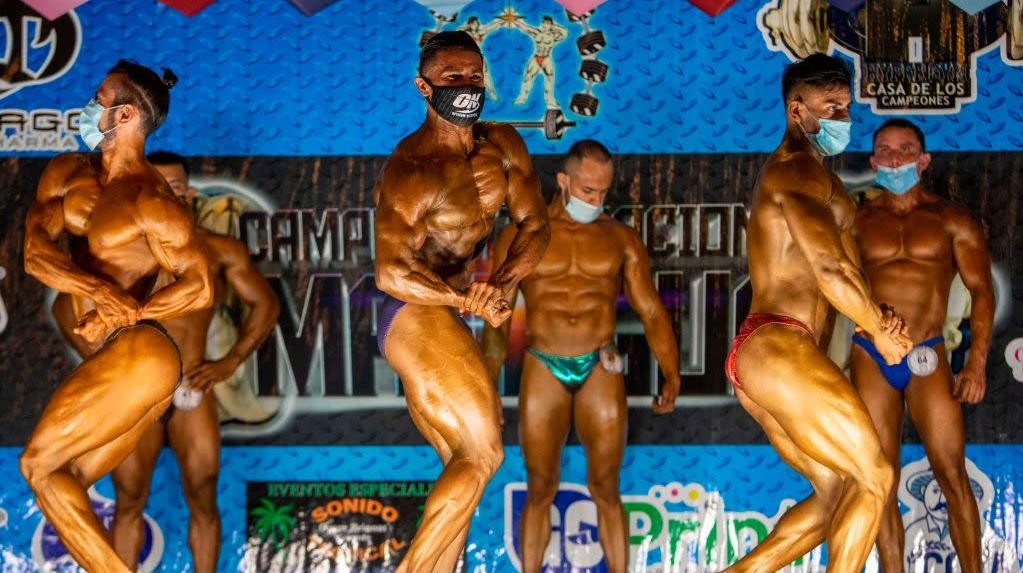Why I, A Noodle-Armed Wimp, Incorporate Protein Powder Into My Diet
I'm creeping up on 30, and I still can't do a push-up. I've never been able to do a push-up and at this point I'm at peace with the fact that I may never do a push-up. I'm a pretty active little critter, big into running and hiking and squatting, but I can't lift my own body weight to save my damn life. But despite my status as a noodle-armed loser, I still suck down at least one scoop of protein powder most days.
First, two disclaimers: 1) I'm not a nutritional expert, and 2) there's a good chance that you already consume an okay amount of protein—especially if you cook with meat. The FDA currently recommends that the average American adult consume around 50 grams of protein a day, with plenty of wiggle room depending on your dietary and exercise goals. If you want a more tangible way to think about it, one egg provides roughly 6 grams of protein, while a piece of fish the size of a deck of cards (little tiny fish!) offers about 30 grams. My problem is I don't cook with meat or fish all that often, and I have a major morning sweet tooth that legally prohibits me from eating eggs for breakfast when I could be eating something like a cardamom bun or Special K Chocolatey Delight. Hence, my tentative journey into the chalky world of protein powder.
I started using protein powder when I was working 50 to 60 very physical hours a week at a nonprofit. I felt tired and depressed all the time, and a therapist recommended I take a look at my protein intake. (I didn't heed all of her advice; she also told me to go outdoors without sunglasses to "look in the general direction of the sun" for 15 minutes a day. Also, quitting the job helped.)
After taking a closer look at my diet, I realized I was only getting around 30 grams of protein a day. I stole a bunch of smoothie recipes from a boyfriend who worked at a health food store, dumped a scoop or two of whey protein into my favorite blends, and drank a protein smoothie every afternoon for a few weeks. I swear I started feeling better. I had more energy, and my depression symptoms felt a lot more manageable. Plus, the afternoon smoothies kept me from crashing around 3 p.m. each day.
Turns out, there's a connection between adequate protein intake and a healthy brain. Amino acids, the building blocks of protein, help produce neurotransmitters. Neurotransmitters are the handy chemicals that allow brain cells to communicate with each other, keeping everything working the way it's supposed to.
And as we know from our good friends Hans and Franz, protein powder can also help make you buff as hell. If gaining muscle is your goal, protein helps the cells in your body kickstart protein synthesis, which helps your body heal and grow bigger muscles after, say, an intense weight-lifting session. Once again, I am not buff, but it's nice to feel like I'm taking steps toward someday becoming buff. You know?
One caveat: you need to be careful when choosing your protein powder, especially if you're ordering it online. This article from Harvard Medical School explains that protein powder is classified as a dietary supplement, which means it isn't regulated like food or medicine. According to the article, while the FDA's Good Manufacturing Practices (GMPs) are meant to keep unregulated products safe, roughly 25% of supplement manufacturers received purity citations in 2017. What's in these tainted powders? I don't know. Bugs, maybe.
These days, I keep it simple. I opt for Trader Joe's vanilla whey protein, which gives my afternoon smoothies a sweet and creamy kick. Two scoops serve up 16 grams of protein, which is usually enough to help me hit 50 grams per day. Trader Joe's whey powder also doesn't have the cloying, artificial aftertaste that I've experienced with other protein powders, some of which are absolutely disgusting. (The worst I've ever tried was TITAN Devil's Food Cake, which tasted like a ground-up 3 Musketeers Bar covered in wet stevia. I put it in a peanut butter smoothie and the powder's fake sweetness was insanely overpowering.) Again, there's a chance that you already consume plenty of protein—but if you struggle like me, you might find that protein powder equals higher energy and a happier brain. Even if it doesn't immediately PUMP [clap] YOU UP!
